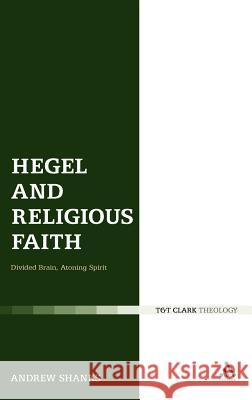Hegel and Religious Faith: Divided Brain, Atoning Spirit » książka
Hegel and Religious Faith: Divided Brain, Atoning Spirit
ISBN-13: 9780567532305 / Angielski / Twarda / 2011 / 192 str.
Hegel and Religious Faith: Divided Brain, Atoning Spirit
ISBN-13: 9780567532305 / Angielski / Twarda / 2011 / 192 str.
(netto: 647,71 VAT: 5%)
Najniższa cena z 30 dni: 644,49
ok. 22 dni roboczych.
Darmowa dostawa!
Hegel is a thinker who haunts modern Christian theology. Although forever being refuted and rejected, he is also forever resurgent as an influence. Here Andrew Shanks diagnoses that rejection, very largely, as a defensive reaction against the sheer, troubling, prophetic open-mindedness of his thought. No doubt there is some justice to the charge that Hegel is religiously one-sided; in particular, as this criticism has been developed by Kierkegaard and, more recently, William Desmond. Against Desmond, however, Shanks argues that the critique itself is no less one-sided. The argument focuses especially on the dialectic of the Unhappy Consciousness in Hegel's Phenomenology of Spirit, seeking to open up its relationship to recent developments in neuropsychology. Key Hegelian terms are also retranslated, in a bid to minimise the off-putting awkwardness of Hegel's jargon. What is at issue here is, surely, the most explosive element in Hegel's thought as a whole. And this is discussed not just as an item of intellectual history, but, rather, very much as a still-living option.











